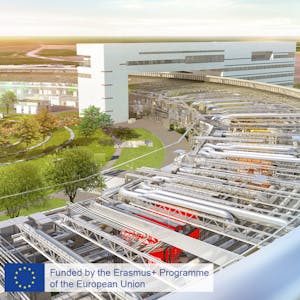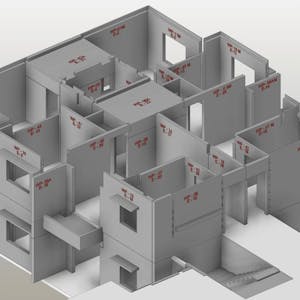Fundamentals of particle accelerator technology (NPAP MOOC)
About this Course
Did you know that particle accelerators play an important role in many functions of todays society and that there are over 30 000 accelerators in operation worldwide? A few examples are accelerators for radiotherapy which are the largest application of accelerators, altogether with more than 11000 accelerators worldwide. These accelerators range from very compact electron linear accelerators with a length of only about 1 m to large carbon ion synchrotrons with a circumference of more than 50 m and a huge rotating carbon ion gantry with a weight of 600 tons! There are also a growing number of synchrotron light sources in the world. The light in these sources are created by electrons that are accelerated to almost the speed of light. This light can reveal the molecular structures of materials and also take x-ray pictures of the inner structure of objects. Synchrotron light sources are very important in life sciences, material sciences and chemistry. Another type of accelerators are used in spallation sources, like the European Spallation Source in Lund, Sweden. Here protons are accelerated to very large energies. They produce neutrons when they are smashed into a disc of tungsten. These neutrons are used for finding the inner structure of objects and atomic structures of materials. Finally there are many accelerators for basic physics, like the large hadron collider in Cern. This course takes you on a journey through the technologies used in particle accelerators: The microwave system which produce the electromagnetic waves that accelerate particles; The magnet technology for the magnets that guide and focus the beam of particles; The monitoring systems that determine the quality of the beam of particles; Finally the vacuum systems that create ultra high vacuum so that the accelerated particles do not collide with molecules and atoms. Exciting right! The course is graded through quizzes, one for each of the four modules. Throughout the course there are also a number of training quizzes to offer you support. The four modules in the course are: RF-systems, Magnet technology, Beam diagnostics, and Vacuum techniques. In total there are 48 lectures, where each lecture is a 2-4 minutes long video presentation. Some of the lectures are followed by short texts with complementary information and all will hopefully be an exciting collection for you to engage with. Have fun!Created by: Lund University

Related Online Courses
This Specialization is intended for post-graduate students seeking to develop effective communication skills. Through a series of courses, you will cover key topics such as audience analysis,... more
Positioning is the heart of any Marketing Strategy, the core that you must get right. It does not matter whether you start with a clearly defined target group or with a differential value... more
This course provides a comprehensive introduction to Object-Oriented Programming (OOP) using Java, covering foundational and advanced topics. Starting with OOP principles, students will learn about... more
The \"Precast Structural System\" course offers a comprehensive exploration of precast elements in modern construction, covering everything from fundamental concepts to advanced design and... more
\"International Communication and East Asian Affairs: International News Practice\" is an online course offered by the Graduate Institute of Journalism, National Taiwan University, in collaboration... more








